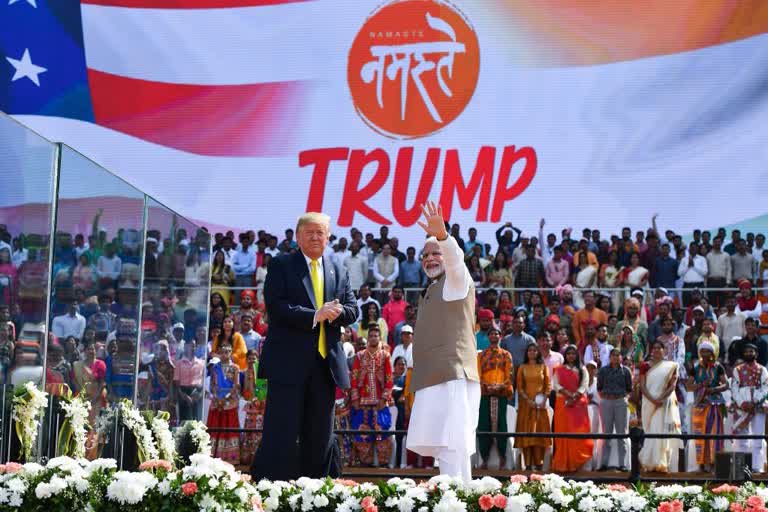Ahmedabad (Gujarat):Addressing a large crowd in Motera stadium in Gujarat, the visiting US President Donald Trump on Monday admitted that negotiating a trade deal with Prime Minister Narendra Modi has not been an easy thing for the US officials.
“Over the course of my visit, Prime Minister Modi and I will also discuss our efforts to expand the economic ties between our two countries. We will be making very-very major, among the biggest ever made, trade deals,” said the US leader.
Trump said that both the countries were in the early stages of discussion for an incredible trade agreement to reduce the barriers of investment between the United States and India.
While outlining his plan to expand the bilateral trade, President Trump admitted that securing any trade concessions from India will not be easy.
“I am optimistic that working together, the Prime Minister and I can reach a fantastic deal, that's good and even great for both of our countries,” said Trump.
“Except that he's a very tough negotiator,” admitted the US leader in an apparent acknowledgement of fact that hectic parleys between the US and Indian officials failed to strike even a modest deal ahead of his visit.
The US has become India’s largest trading partner with more than $142 billion two-way trade including both goods and services. However, the trade relations between the two countries have been far from comfortable in the last two years.
While the US imposed duties on imports of certain steel and aluminum products in 2018 and also withdrew concessional arrangement under the Generalised System of Preference (GSP) that hurt India’s export to the US. India also slapped duties on US exports to India to have an equal and opposite impact.
Officials from both the countries were trying to hammer out a modest trade deal that could be signed during the President Trump’s maiden India visit but the US leader last week admitted that it was at least months away.
Trade experts say that both the leaders are driven by their desire to extract maximum concession for their domestic producers that is stalling an early conclusion to the proposed deal.
